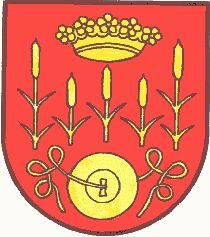Rohr bei Hartberg: Difference between revisions
Knorrepoes (talk | contribs) m (Text replace - "'''Origin/meaning :'''<br>" to "====Origin/meaning====") |
Knorrepoes (talk | contribs) m (Text replace - "|width="15%"|50 px|right |}" to "|width="15%"|50 px|right |}<seo title="Wappen, Gemeindewappen" />") |
||
| Line 3: | Line 3: | ||
|width="70%" align="center" |'''Heraldry of the World<br>Civic heraldry of [[Austria]] - [[Austria|Österreichische Gemeindewappen]]''' | |width="70%" align="center" |'''Heraldry of the World<br>Civic heraldry of [[Austria]] - [[Austria|Österreichische Gemeindewappen]]''' | ||
|width="15%"|[[File:Austria.jpg|50 px|right]] | |width="15%"|[[File:Austria.jpg|50 px|right]] | ||
|} | |}<seo title="Wappen, Gemeindewappen" /> | ||
'''ROHR BEI HARTBERG''' | '''ROHR BEI HARTBERG''' | ||
Revision as of 13:17, 7 November 2012
| Heraldry of the World Civic heraldry of Austria - Österreichische Gemeindewappen |
ROHR BEI HARTBERG
State : Steiermark
District : Hartberg
Origin/meaning
The arms were granted on February 13, 1995.
"Rohr" in this context means reed bank, so reeds were put into the shield.
The parish church is dedicated to St. Florian. St. Florian is a very popular saint, chiefly as a protector against the dangers of fire. He is often depicted with a bucket of water, extinguishing fire in a burning house.
He was martyred in today's Upper Austria, near Lorch, in the 3rd century. As a professed Christian, a millstone was tied to his neck and he was thrown into the river Enns. The millstone honours St. Florian and the crown of roses illustrates at once his martyrdom and his name, Florian being derived from Latin flos, which means flower.
Literature : Image provided by Karl Palfrader (k.palfrader@aon.at), MStLA 47 (1997), p. 48

